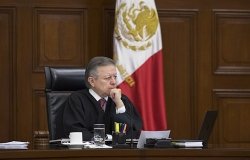#129 The Origins of Democracy: Theoretical Reflections on the Chilean Case
By Arturo Valenzuela
Abstract
The social science literature which attempts to explain the origin and consolidation of democratic regimes can be divided into three groups. Cultural theories place emphasis on the development of appropriate values which make possible the acceptance of representative rules and procedures. Economic theories either draw a direct relationship between economic development and democracy, or point to the appearance of certain groups or coalitions whose differential economic interests contribute to the replacement of authoritarian regimes by more democratic ones. Political theories focus more on the timing and sequence of various political crises in explaining the success or lack of success in the consolidation of representative institutions. The Chilean case had comparable levels of democratic development on two key dimensions, contestation and participation, as the most democratic European cases. And yet, the Chilean case, a deviant case in Latin America, cannot be fully explained by the available theoretical literature.
The paper documents the exceptionality of the Chilean case, reviews the relevant theoretical literature and suggests why it is wanting in explaining Chilean developments. It concludes by examining certain features of the Chilean case which provide a potential framework for a reinterpretation of the process of consolidation of democratic regimes which places a stress on political variables over cultural and economic ones.
Related Program

Latin America Program
The Wilson Center’s prestigious Latin America Program provides non-partisan expertise to a broad community of decision makers in the United States and Latin America on critical policy issues facing the Hemisphere. The Program provides insightful and actionable research for policymakers, private sector leaders, journalists, and public intellectuals in the United States and Latin America. To bridge the gap between scholarship and policy action, it fosters new inquiry, sponsors high-level public and private meetings among multiple stakeholders, and explores policy options to improve outcomes for citizens throughout the Americas. Drawing on the Wilson Center’s strength as the nation’s key non-partisan policy forum, the Program serves as a trusted source of analysis and a vital point of contact between the worlds of scholarship and action. Read more









